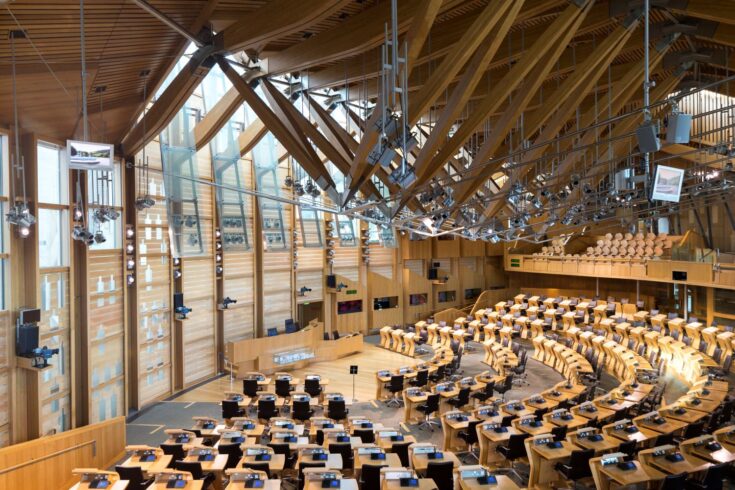Each of the UK’s 4 governing administrations has its own responsibilities and powers. When facing crises, as well as during the routine business of government, these administrations must work together to ensure they govern effectively.
Effective intergovernmental relationships are therefore essential to the stability of the political union.
However, recent events, including reforms to devolution, the UK’s departure from the EU, and COVID-19, shone a light on these weaknesses. EU Exit, in particular, also brought new stresses and strains in the relationships, adding urgency to the need for reform.
Credit: Economic and Social Research Council
On-screen captions and an autogenerated transcript are available on YouTube.
About the research
Through a series of research projects, Professor Nicola McEwen has highlighted problems with the processes and practices of intergovernmental relations (IGR).
The 2016 devolution settlement complicated the linkages between the new powers devolved to the Scottish Parliament and those still reserved to the UK.
Professor McEwen is the co-investigator on the Economic and Social Research Council (ESRC) large grant project, ‘The Constitutional Future of Scotland and the UK’. Her research highlighted the problematic nature of increasing interdependence between these reserved and devolved powers against the backdrop of under-developed processes and machinery to support relationships between the UK and devolved governments.
Professor McEwen has also analysed the political and institutional dynamics that arise when governments are led by competing political parties with divergent outlooks on the future of the UK.
The outcome of the EU Exit referendum heightened the competitive nature of IGR. As a Senior Fellow of the ESRC UK in a Changing Europe initiative, Professor McEwen carried out real-time research on the consequences of the EU Exit negotiations, agreements, legislation for devolution and relations between the governments.
Based on further ESRC-funded research, she found that the intensification of formal and informal IGR during the EU Exit process revealed opportunities for, and obstacles to, more formalised co-operative working across the UK.
Overcoming barriers to more effective IGR will require:
- shared understanding of devolution
- efforts to rebuild empathy between the UK and devolved governments
- more effective intergovernmental machinery
Professor McEwen has actively worked with governments and shaped new reforms that promise more transparent and effective intergovernmental processes and practices. The research has also influenced UK government legislation designed to help protect the outputs of effective joint working between the UK and devolved governments.
Impacts of the research
Professor McEwen’s expert testimony and advice has helped parliamentary committees across the UK respond to the unprecedented challenges placed on the UK constitution since 2014. She appeared 25 times as an expert witness between 2014 and 2020, and her research was cited 90 times across 14 parliamentary reports.
Protecting the authority of devolved institutions
Professor McEwen shaped the understanding, scrutiny and development of 3 pieces of legislation that affected devolved powers:
- Scotland Act (2016)
- EU (Withdrawal) Act (2018)
- UK Internal Market Act (2020)
Her evidence, briefing papers and discussions influenced the positions adopted by devolved governments, parliamentary committees and parliamentarians. This ultimately helped to ensure that key elements of the legislation supported the effective functioning of devolution, including some protection for the authority of devolved institutions.
Reforms to intergovernmental relations
Recommendations from Professor McEwen’s jointly authored report on inadequacies in the formal system of IGR fed into the outcomes of a formal ‘joint review’ of IGR initiated by the Prime Minister and first ministers.
Recommendations included:
- establishing an impartial, standing secretariat
- decision making by consensus
- more equality in the roles and responsibilities of the governments
- a new, fairer process for resolving disputes
Ms Camilla Pallesen, former Head of Intergovernmental Relations Review, cabinet office says:
The outcomes of the joint review of intergovernmental relations that concluded in January 2022 demonstrate the value of Professor Nicola McEwen’s research and also her personal impact on UK government policy.
Greater transparency on intergovernmental relations
Professor McEwen’s recommendations led to an agreement between the Scottish Parliament and Scottish Government on how and when it reports on ministerial engagements with the other governments of the UK.
Her research also prompted the UK government to increase transparency, including a quarterly review and a new gov.uk web page for intergovernmental relations reporting.
Find out more
Professor Nicola McEwen is a finalist in the ESRC Celebrating Impact Prize 2022.
View the Centre on Constitutional Change’s website.
Read about intergovernmental relations in the UK.
Top image: Credit: Daniel Tomlinson, iStock, Getty Images Plus via Getty Images

